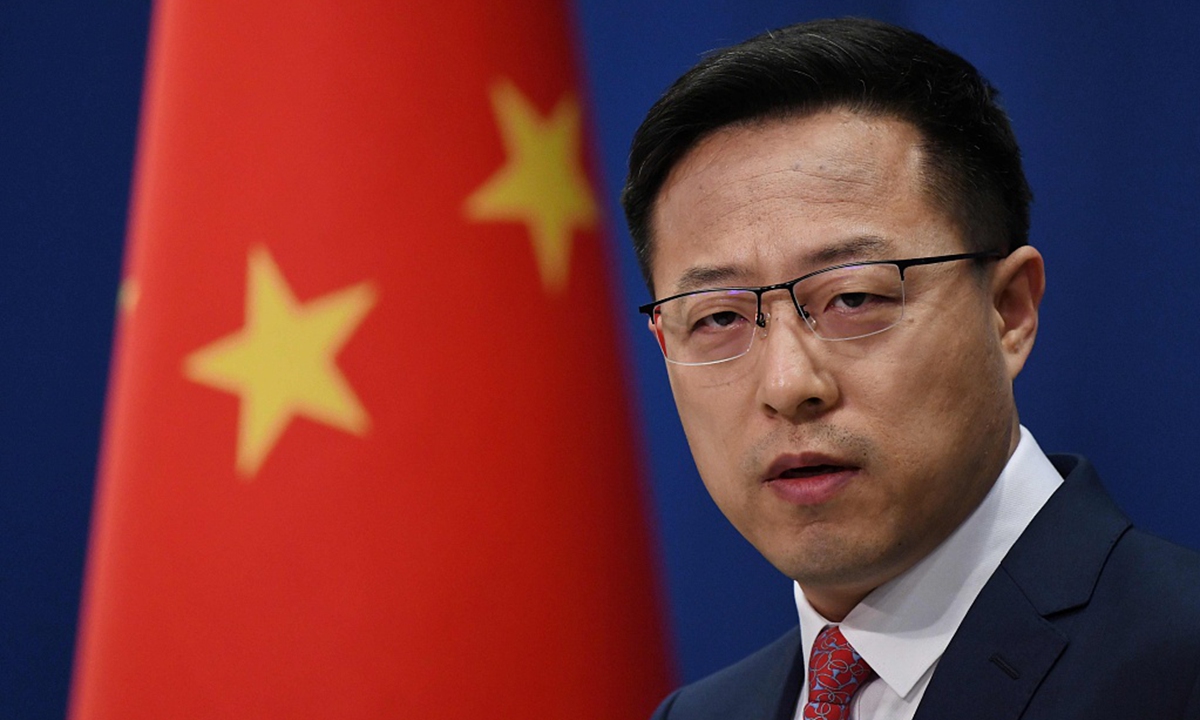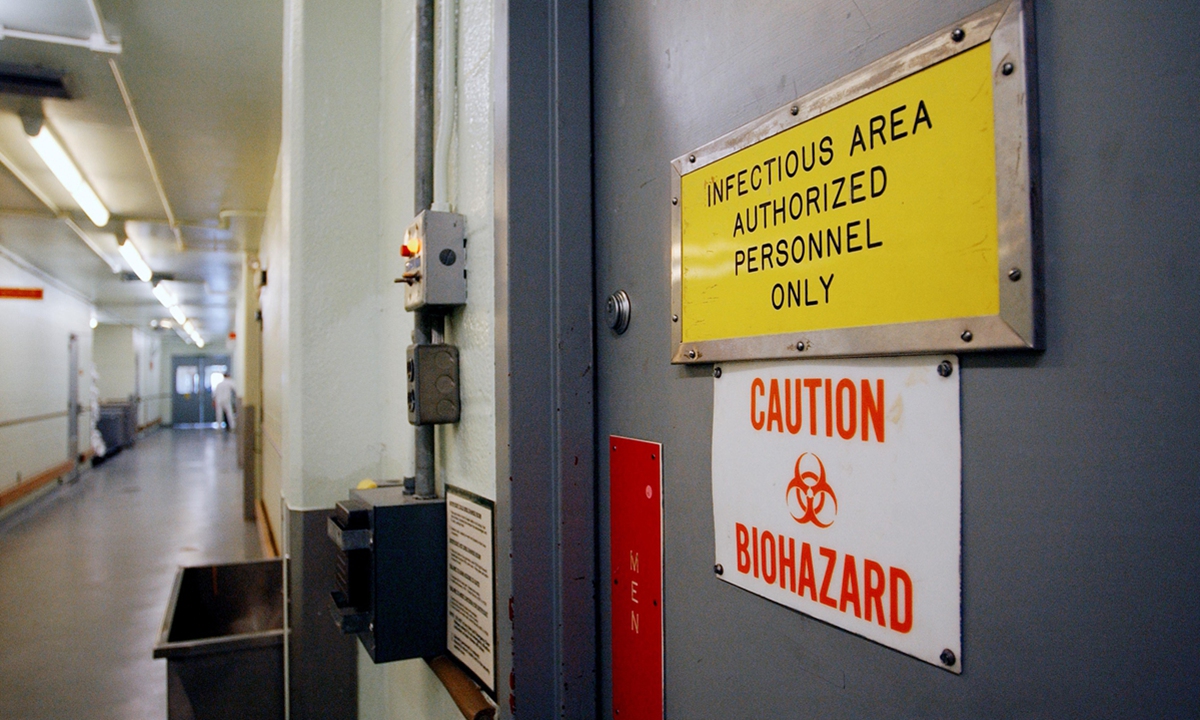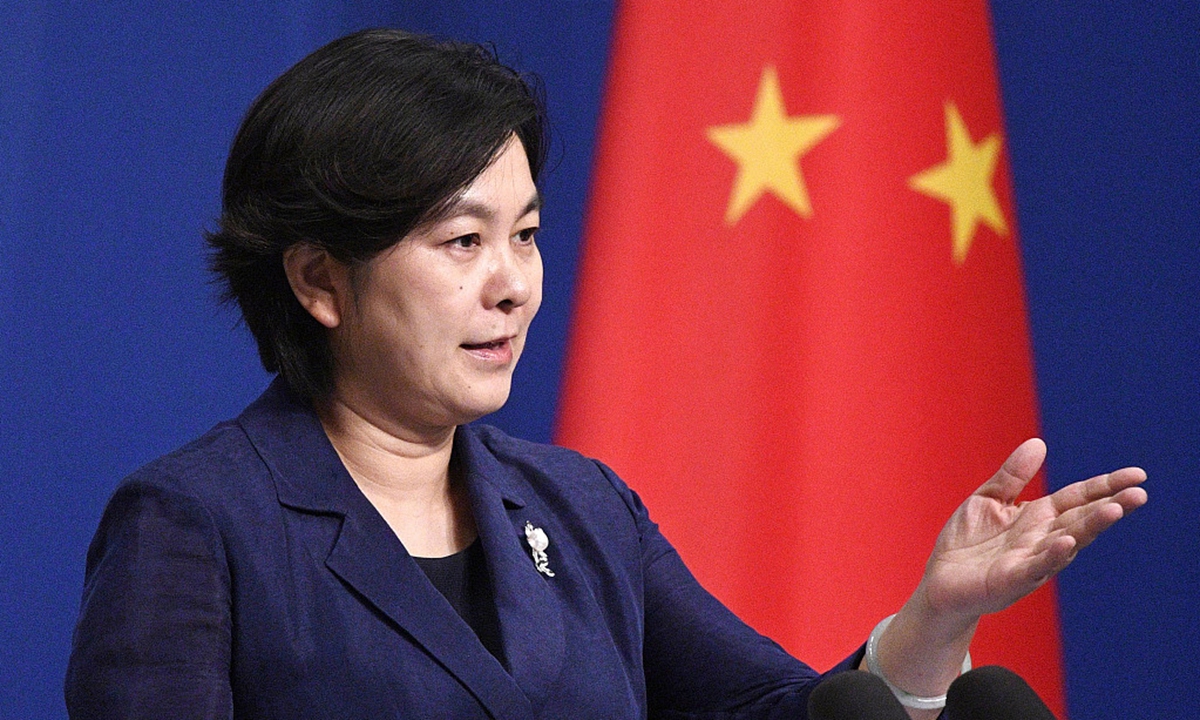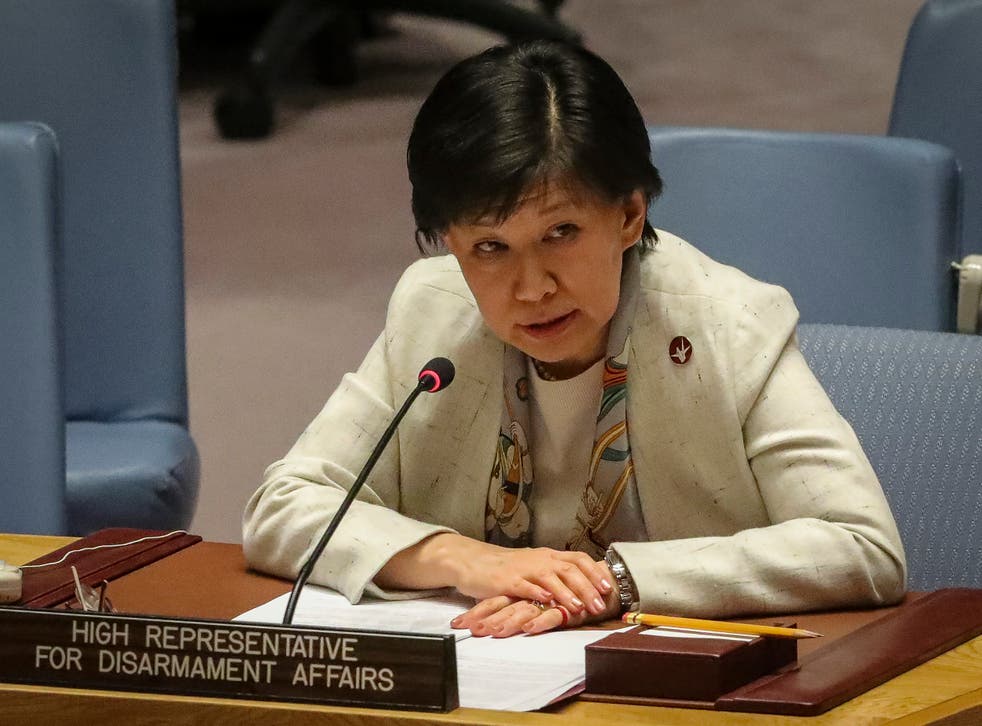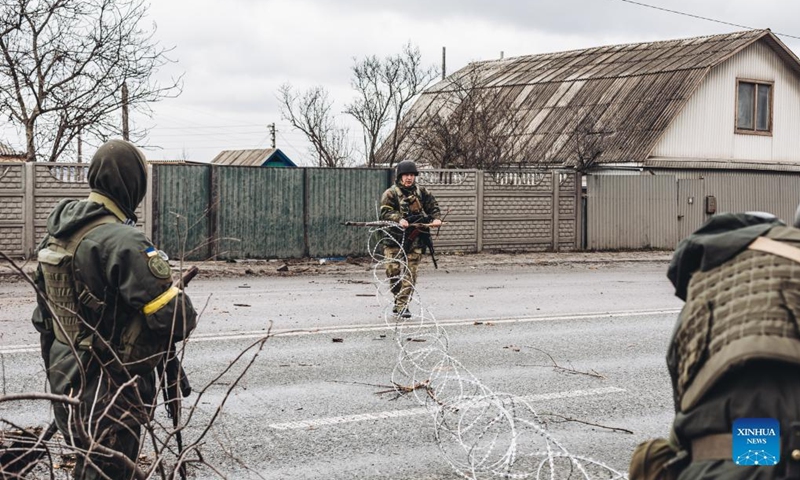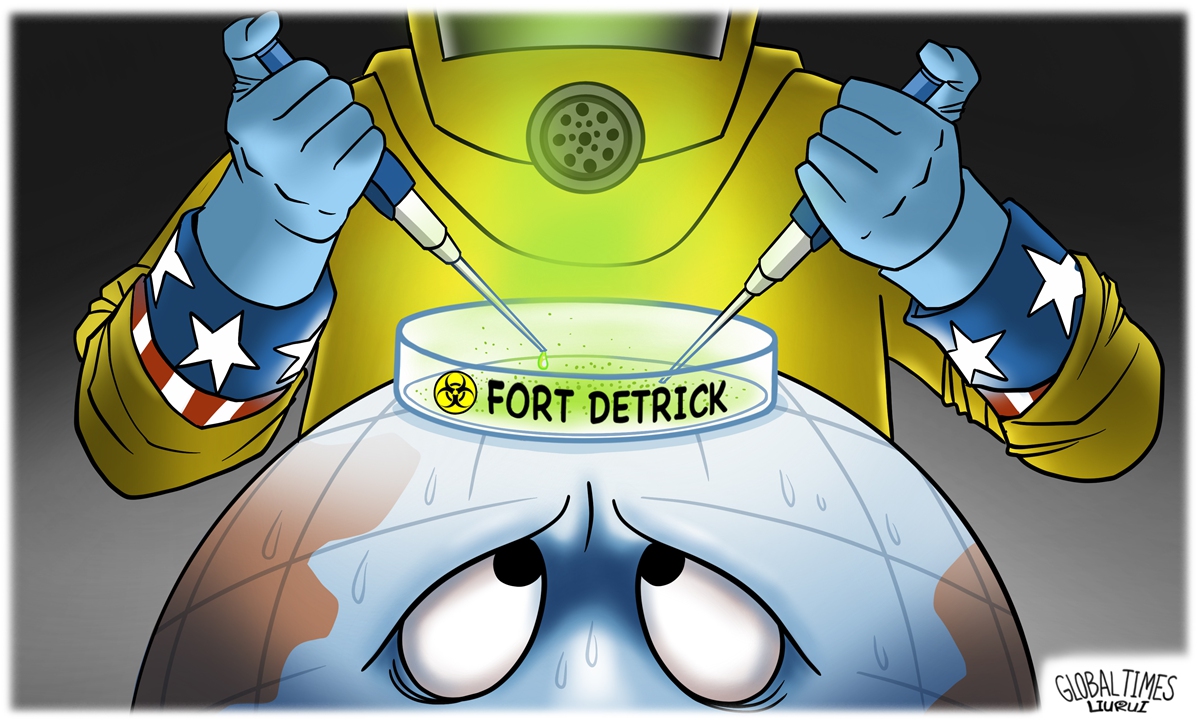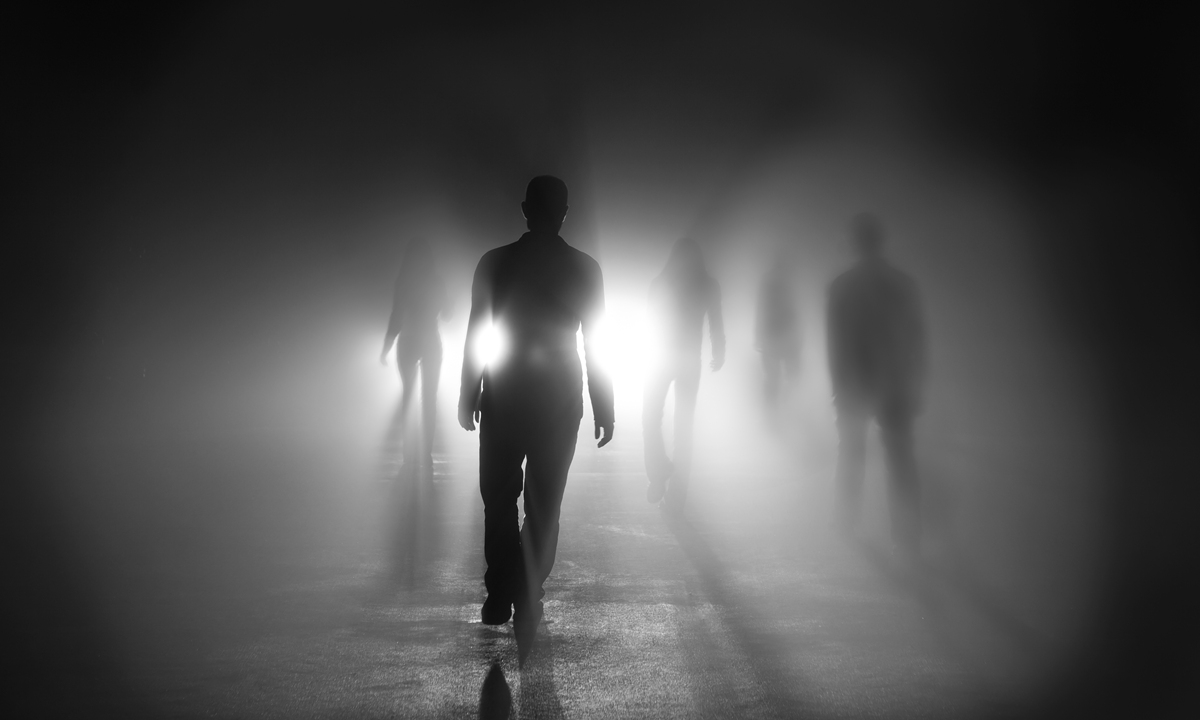Editor's Note:
US-funded bio-labs reportedly discovered in Ukraine have attracted global attention as many question the US' inconsistent responses regarding the matter, for a full clarification of its bio-military activities within and outside its borders. The Global Times lays out the spread of the US' Cooperative Biological Engagement Program and wide concerns over its labs' potential risks and safety loopholes.
Chinese FM raises six key questions on US bio labs in Ukraine, demanding truth
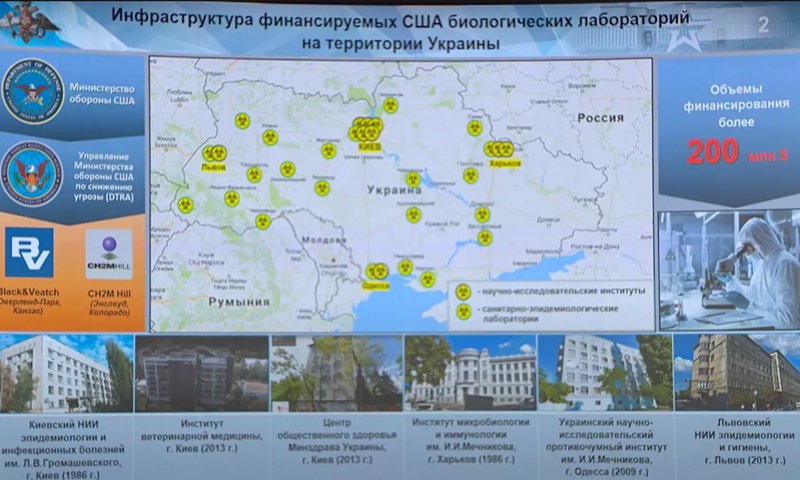
Screengrab of Russian Defence Ministry briefing showing US-sponsored biolabs on Ukraininan territory. Photo : Russian Ministry of Defence
`
At Monday's routine news conference of the Chinese Foreign Ministry, the spokesperson for the ministry rebutted the US' inconsistent and flawed responses regarding its biological laboratories in Ukraine, urging a full clarification of its bio-military activities within and outside its borders.
`
When a BBC reporter asked that the US claims seem to suggest that its secret research involving viruses in Ukraine has nothing to do with the military, Zhao Lijian, the ministry's spokesperson, directly pointed out that the US' response to the issue so far has been contradictory and confusing.
`
Under a 2005 agreement between the US and Ukraine, US Department of Defense representatives are authorized to participate in all activities related to Ukrainian facilities, and Ukraine is prohibited from releasing information that the US determines to be "sensitive."
`
According to the US submission to the 2021 Biological Weapons Convention (BWC) Meeting of States Parties, the US has 26 laboratories and other cooperative facilities in Ukraine.
`
"We can't help but ask: Did the US send teams to Ukraine or not? What exactly is the scope of their activities? How many collaborative facilities are there? What sensitive information in the field of public health is not allowed to be disclosed? Does Ukraine know what the US is doing in Ukraine?" Zhao asked.
`
Public information shows that tens of biological laboratories in Ukraine were operated on the orders of the US Department of Defense, that the US has invested more than $200 million in these laboratory activities, and that US research was aimed at establishing mechanisms for the covert spread of deadly viral pathogens.
`
Russian officials said that Russia found more than 30 biological laboratories affiliated with the US on the territory of Ukraine and that the relevant items were urgently destroyed, but traces of plague, anthrax and other pathogens were found.
`
While the US initially slammed information about its bio warfare labs in Ukraine as "fake," on March 8, Undersecretary of State for Political Affairs Victoria Nuland admitted the existence of US-funded "biological research facilities" in the country.
`
"If the information released by the US itself is inconsistent and full of loopholes, how can the international community believe that the US is fulfilling its BWC obligations?" Zhao asked.
`
The US is the only country that opposes the establishment of a verification mechanism for the BWC. At the same time, for decades the US has been accusing other countries of not complying with the treaty, and even sanctioning and using force against these countries.
`
"When it happens to the US, it evades inspection, which is a typical US double standard," Zhao said.
`
The spokesman urged the US to make a full clarification of its bio-military activities within and outside its borders in a responsible manner and to stop opposing the establishment of a verification mechanism for the Biological Weapons Convention, which would help restore the international community's confidence in the US compliance with its international obligations and would also help raise the level of global biosecurity.
`
The World Health Organization has "strongly recommended" to the Ministry of Health in Ukraine to safely destroy "high-threat pathogens" that might be housed within the country's public health labs in order to prevent "any potential spills."
`
Source link
Related posts:



